#honkai tierlist
Explore tagged Tumblr posts
Text
The 𝓯𝓻𝓮𝓪𝓴𝔂 Tierlist

#honkai posting#honkai sr#honkai star rail#hsr liveblog#hsr shitpost#hsr#honkai shitpost#honkai tierlist#tier list#honkai ratio#honkai sampo#hsr sampo#sampo koski#hsr firefly#hsr penacony#hsr meme#hsr x reader
65 notes
·
View notes
Text
Tier List of Honkai Valks based on Forklift Certification

hare may not be plausible bc she is not a human existence
theresa is probably old and exprienced enough but her hands would not be able to reach the controls
The lift a fork tier is people who are extremely unqualified and the two people who would lift a fork if you asked them about a forklift certification
and the do not trust tier is between people with questionable morals and 2 knuckleheads
even original VillV/pure good Vill-V was the one who started a war between native monkeys on an island by giving them guns and let them all kill each other
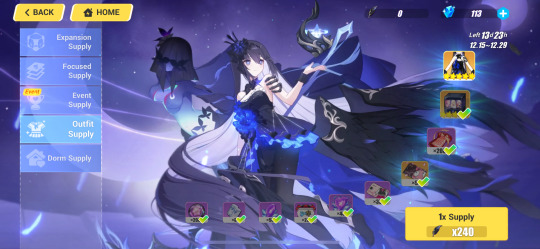
anyways im not coping rn totally not coping agagwgahagahahahagahahagwahqhwgeheheeheheeheheeheheheeehhhhhhhhhhhhhhhhhhhhhhhhhhhhhhh
(I have unfinished kolosten, moon arc, and elysium content but mannnnnn)
33 notes
·
View notes
Text

Been getting into hsr lately
#hsr#honkai star rail#trailblazer#dan heng#march 7th#i would tag the rest but iirc its only the first five tags that get sorted anyways so...#im like halfway through penacony and have done like 2 story quests outside of the main ones#which is why some characters arent here#this tierlist was inspired by running into sampo in penacony and saying “not this fucking guy again” outloud to my phone screen
37 notes
·
View notes
Text
silly little unserious hsrtierlist

ye… i was bored!! might do some period-accurate fanart for funsies🤪 (also looking back some of these are inaccurate as CRAP but oh well)
#hsr#honkai star rail memes#honkai star rail tierlist#prep vs goths#my immortal#hsr boothill#hsr robin#hsr acheron#hsr adventurine
11 notes
·
View notes
Note
hi this is the hate ask anon. thanks
No problem. Heres the hi3 tierlist i made of the characters based off of their period cramps
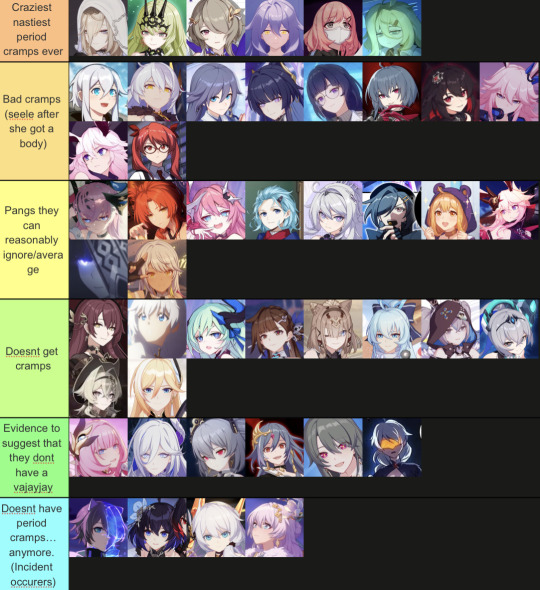
23 notes
·
View notes
Text
As my and my friends are extremely bored and were doing all kinds of tierlists yesterday... What tierlists with hsr characters you'd like to see? Y'know, something like "what kind of drunk would they be" (which we already did)
3 notes
·
View notes
Text

EPIC HSR SHIP TIERLIST i made with my bro.
rule 1 we both have to agree on the ranking
rule 2 trailblaizer f/m gets the same ranking, cuz they are the same person xd
3 notes
·
View notes
Text
since tierlist maker won't save my rankings and my fingers are tired and it's 10 pm, giving hi3 characters hcs on how good they are if they were to play hi3 (NOT EVERYONE)
BRONYA AND HER VARIANTS - literal gamer legends wtf else do i have to say?? would be an absolute beast when playing honkai fall girls
SEELE AND VELIONA - veliona's just slightly better than seele, surprisingly both are great at the game (veliona CONSTANTLY uses seele's battlesuits and was very pleased that HoRB is a meta support)
RAIDEN MEI - doesnt play often but does try it out, she sort of enjoys it but only when kiana's involved (was very sad that co-op raids were removed)
FU HUA - only second to bronya (technically fourth if you count all her variants) and kiana's luck. terrible gacha luck (that last sentence is probably canon)
KIANA - got multiple s-ranks in a single 10 pull and was like 'is this good', pulls for fu hua and mei's accounts
KOSMA - pretty good at the game! feels insecure abt it, though
ELYSIA - plays the game just for collecting the outfits she thinks are pretty and a bit of the lore, probably does cosplays
MOBIUS - does not touch the game until griseo wanted to show her and got a bit addicted to the lore of part 2
KEVIN - used to play video games when he was in high school and would be a little familiar with it but is too busy being cryptic and secretive (working) to constantly play
#honkai impact#honkai impact 3rd headcanons#raiden mei#seele#bronya#kevin kaslana#kiana kaslana#mobius#elysia#kosma#kiana#fu hua#veliona#seele and veliona#seele vollerei#hi3#honkai impact 3rd#hi3rd
28 notes
·
View notes
Text
stole this idea from @ad-asteria
but tier list of the muses
Genshin Impact

Honkai Star Rail:

Zenless Zone Zero


Enjoy the tierlists!
10 notes
·
View notes
Text

84 notes
·
View notes
Text
Criticism of Penacony and why i think HYV shouldve quit while they were ahead.
//vent towards the end, references to suicide while those references are quest spoilers Recently I've been doing world quests and grinding out the new region and been repeatedly finding myself walking straight into microagressions and slights to the point where it's been jarring enough for me to put my game down. As a black dude playing HYV games i know well enough not to act like the stupid billion dollar game company cares about appealing to minorities but its 2024 man.
First off, the obvious issue. Penacony has been repeatedly mentioned by the devs themselves to be based off of the Jazz Age from the U.S. a few decades ago.
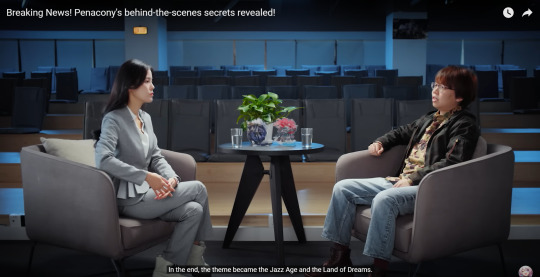
youtube
The Jazz age was a period of time in American History between the 1920's and 1930s where the popularity of Jazz just boomed from being like an indie type of music to one of worldwide popularity. Obviously, Black people in that era are wholly responsible for Jazz itself.
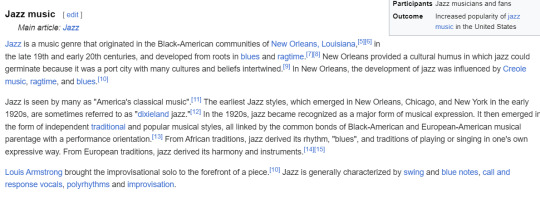
So yeah, Penacony takes its origins from a key black history movement. Penacony, the region that released at the start of February. Black History Month. Star Rail is arguably one of the most popular games right now in terms of outreach because it's free, its new, and its colorful/futurisric etc.... And yet....
Just like with the rest of the HYV games that take real world inspirations, they fucked over black people and their stories.
In Honkai Impact 3rd, basically we had this one black girl who's like sandpaper brown and complains about how much her DARK SKIN ruins her look and how she bleaches her skin using various products to keep it lighter. She is ashamed of her DARK SKINNED mother who's a military woman. Her father is absent. Her mother is also a grown adult who is a B-rank soldier(main character white teenagers are S-rank for reference). Carole Peppers is her name if you want to go further down that rabbit hole.
In Genshin Impact, besides the fact that people with different skin tones are CLEARLY sectioned into certain regions(no seriously there's no real reason why i shouldnt see a black person in any of the existing regions.), and besides the unnecessary amount of whitewashing and besides the perpetuation of the idea of melanin NOT being natural, every single brown/black character in the game has awful playstyles and/or poor matching with weapons/artifacts, inaccessibilty, and they NEVER make it to the top of any meta tierlists. I'm not outright saying they're bad they're just harder and almost never get specialized weapons.
The only previously relevant example in Star Rail was Arlan, a lightning/destruction character. He chews through his own HP and unlike characters like blade/clara, does not have resistance or healing to handle that. Serval, the other lightning 4 star, out-dps's him veryyyyyyy easily. So yeah, the ashy black person character basically dies if you use him for too long and is never relevant TO ANY quests except where he needs to be the sidekick.
sometimes these games have dragons, animals that can understand and process english, or magic.... but then not black people...
Penacony has no black main characters. No black stories of relevance. Yesterday found an NPC whose name was detracted from chocolate and the player had the option to let commit suicide.
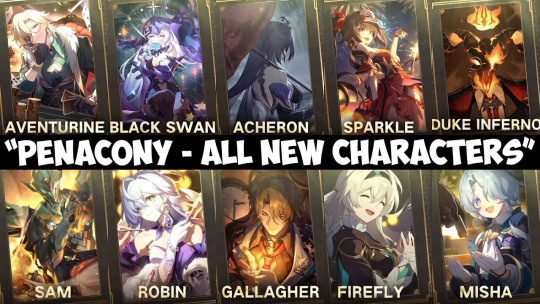
yeah ill get to that 💀. This large mass of at least 4 supernatural looking characters and yet no black person. NOT EVEN ANY OF THE CHARACTERS FROM penacony itself are black.
so yesterday I was grinding clockwork quests and had to help out some apathetic shopkeeper named Cocona. Her story was almost a bit sad but midway into going through her background i realized her name is one letter off of cocoa. now imagine being on a creative team coming up with a name for a melanated NPC and somebody decides on fucking CHOCOLATE with an extra letter. before anybody implies that one was something i shoehorned, think about how itd go if i had a bunch of POC characters and one white girl named crackerella.
Cocona and her once again sad backstory reach a hard tipping point as the player follows her to the edge of a building and can either grab her to stop her from jumping or simply let her end her life jumping off the building.
Yes we've seen how this game lets you make choices and watch the consequences of your actions, but there have been established rule-breaking predecents. Take Ruan Mei's quest where you have no choice but to eat the cake she offers you and once again lose the ability to make a choice on saying anything related to her. or any time the trailblazer gets pushed into a fight and cannot de-escalate. ....with this in mind consider why was saving the cocoa girl from killing herself NOT a forced option.
normally id be the kind of silly person looking for lore bits and stuff and making theories, (like how clockie is from the path of elation :v)but as a black dude this whole region is disgusting. THEY ARE GENTRIFIYING JAZZ AND COVERING UP ITS BLACK ORIGINS idk who said HYV cared about their audiences they fucking dont.
wouldve posted this on reddit but whoop dee do i am NOT getting doxxed today.
#honkai star rail#iotalks#penacony#discussion#hoyoverse#mihoyo#gaming while black#the jazz age#hsr discussion#hsr#sometime id like to play a fantasy game as a black person and not feel like a clown#tw sucidal ideation#jazz music#i hope they lose money im so serious like i hope kotaku or some gaming forum writes an article abt this shit#genshin mention#hi3 mention#anti blackness#id be mad but there's more important things to be mad about on the other end of the world so im just miffed abt this#Youtube
48 notes
·
View notes
Note
tierlist from better to worse artist of the survive kids GO!
imo it goes like this:
1. Takuma (i feel like he'd enjoy drawing, but he preffers to make doodles of his friends and other kemonogami he sees, hiccup httyd core)
2. Ryo (idk he has vibes)
3. Miu (she used to be pretty avarage, but she is getting tips and stuff from Takuma now :) they draw together sometimes)
4. Saki (i feel like she can likes to draw flowers + floramon)
5. Minoru (he is very avarage, i think he'd preffer photography. He has a stash full of Takuma's drawings though)
6. Aoi (she scribbles to let her feelings out, she preffers photography like Minoru)
And the last two tied as the worst artist are:
7. Shuuji & Kaito (they can only draw stick figures, but we appreaciate their stick figures)
Takuma does have kid who spaces out in class and draws instead energy. Bro has the Miles Morales art style jsndnd

I kinda love Ryo getting good at art as a way of expressing himself. Choosing to diagnose him with Spencer Shay art style.

Miu got that Pela Sergeyevna (Honkai Star Rail) style kakdnd like you can't tell me that's not a kid who draws in a super anime style

I like the idea that Saki isn't great at drawing a lot of things, but when it comes to plants and insects suddenly she's Maria Merian

Conversely to Miu, Minoru's got that Gepard Landau art style 😭😭😭 At least when it comes to people. I choose to believe he's really good at drawing mechas.

Aoi mostly just doodles in margins of notes. It's very "Sokka trying to draw Appa"

For some reason everything Kaito tries to draw ends up as a rabbit or cat. Diagnosing him with Rukia Kuchiki. I also think his handwriting would be god awful chicken scratch that only he can read.


As opposed to Ryo, Shuuji’s art is very Carly Shay. At least he can draw four straight lines. I like to think he'd have the best handwriting out of everyone to make up for the drawing XD

#digimon survive#takuma momozuka#ryo tominaga#miu shinonome#saki kimishima#minoru hinata#aoi shibuya#kaito shinonome#shuuji kayama
16 notes
·
View notes
Text
the honkai cast is just so so beautiful i wish there were a proper tierlist so i could show you guys.
6 notes
·
View notes
Note
I saw your recent news about honkai star rail, and was wondering if you could di a burping tierlist of the characters? (Based off what you know of them currently)


I added Luka because they didn't have him in the tier list yet and until proven otherwise I consider Dan Hang and Dragon Dan the same person.
Like the others this is still a guess/in progress. Doesn't others aren't capable of more or epic belches, this is just more average scores.
11 notes
·
View notes
Note
Okay, here goes. Forgive me for being selfish.
Can I just say, I am so TIRED of people attacking others for having a different opinion? Especially if it's over a piece of fiction.
Yes, I know. Firefly is a popular character and a lot of people's best girl. But, oh, God forbid if someone says that don't like or, worse yet, hate her.
That is what happened to me while I was out with a friend. We were having fun until we bumped into the student living next to them. My friend, being the nice soul they are, invited her to hang out at their dorm.
It was all fine at first until she brought up Honkai Star Rail and asked us a bunch of questions. As soon as both me and my friend said that Firefly's our least favorite (well, most disliked for me) character, this bitch started having a meltdown. She accused us of being misogynists who didn't like it when "women have a personality" (whatever that means) and want all women to stay as lobotomized dolls who do nothing but sit around and look nice.
Their roommate ended up getting help from her roommate to drag her out while she's kicking and screaming.
Seriously, am I misogynistic for not liking and/or defending a female character? That just sounds so ridiculous.
well, that does sound ridiculous. I think firefly is cute and all but she’s also not my most favourite character. i don’t think it’s bad that you don’t feel the same as others do towards her.
it’s fine to not like a character that everyone likes, that your own opinion and preference. what matters is that you don’t insult the character to which i do think you didn’t do, you just said that she’s your least favourite.
for me, firefly is in the middle of my fav characters tierlist. it’s just because I don’t feel any sort of deep connection towards her cuz she and TB didn’t particularly spend that long of a time hanging out with each other. and i do think that there are others who feels the same way towards her. so yeah, it’s not your fault lol. i think that person is just… crazy for throwing a tantrum because of a character
4 notes
·
View notes
Note
THIS IS A HATE ASK
Thats great let me show you my hi3 tierlist based off of how the characters would text back to you while they were masturbating:

22 notes
·
View notes